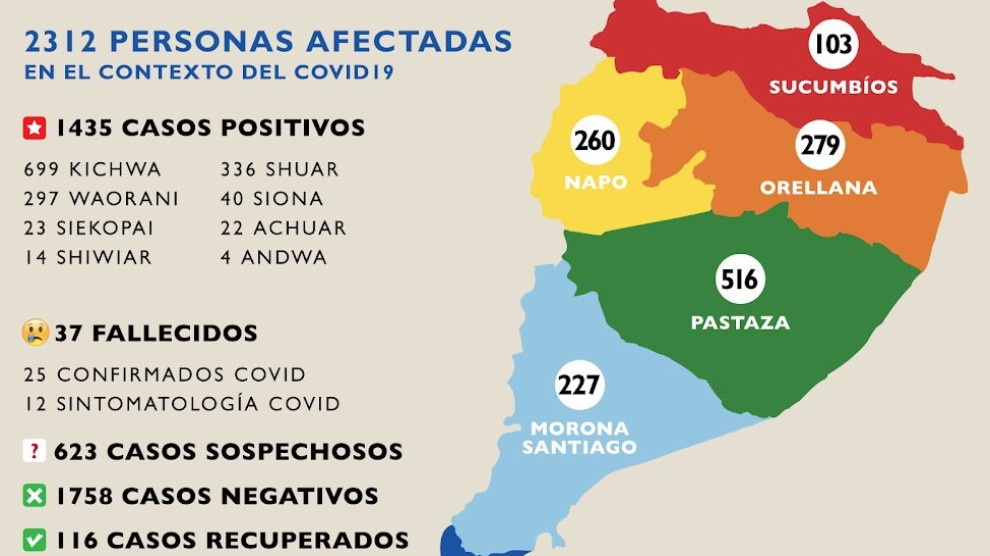WHO warns about heavy impact of Covid-19 on indigenous peoples
In Latin America, Peruvian, Ecuadorean, Colombian, and Bolivian Indigenous communities face medical supplies scarcity and the lack of governmental preventive actions against the virus.
In Latin America, Peruvian, Ecuadorean, Colombian, and Bolivian Indigenous communities face medical supplies scarcity and the lack of governmental preventive actions against the virus.

World Health Organization general director Tedros Adhanom Ghebreyesus warned about COVID-19 impact on indigenous communities.
“Although COVID-19 is a risk for all indigenous peoples globally, WHO is deeply concerned about the impact of the virus on Indigenous peoples in the Americas, which remains the current epicenter of the pandemic,” Ghebreyesus stated.
Worldwide, there are about 500 million Indigenous people, in both rural and urban spaces. They face systemic discrimination, cultural isolation, economic disadvantage, and limited access to education, health as well as other main services.
In Latin America, Peruvian, Ecuadorean, Colombian, and Bolivian Indigenous communities face medical supplies scarcity and the lack of governmental preventive actions against the virus.
“Although COVID-19 is a risk for all Indigenous peoples globally, WHO is deeply concerned about the impact of the virus on Indigenous peoples in the Americas, which remains the current epicenter of the pandemic,” Ghebreyesus briefed.
The Amazon Indigenous communities who live in Brazil, Peru, Colombia, Bolivia, and Ecuador borderline territories are the most vulnerable. Recently, Nahua people's community members tested positive for the virus.
As of July, over 70,000 Indigenous people tested positive to COVID-19, and more than 2000 died due to the virus.